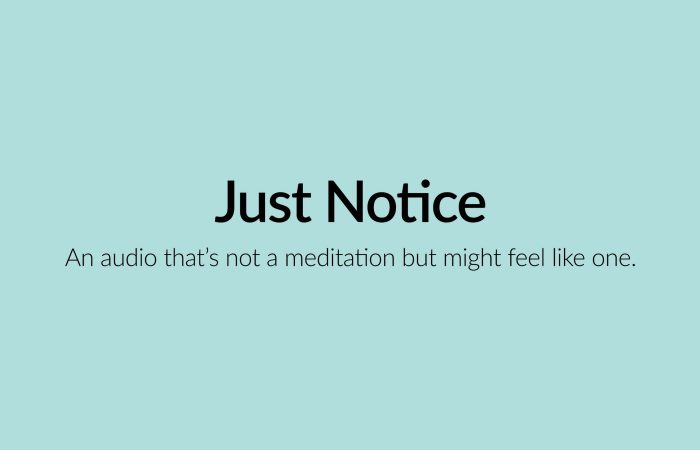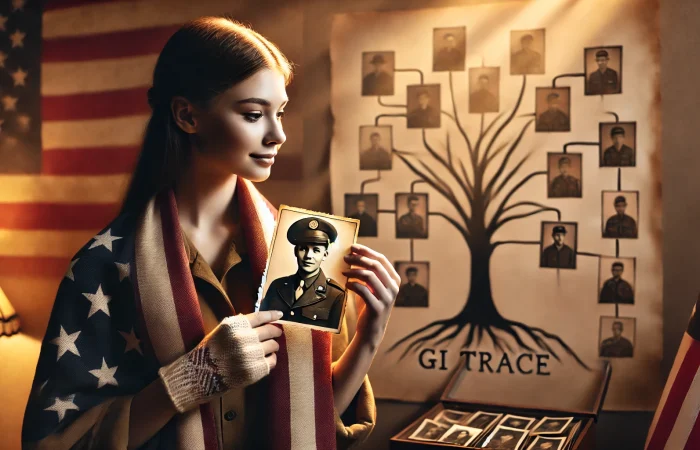Assistant coach for the BNZ Crusaders and friend of Incognito Artists, Brad Mooar popped into the #incognitostudios last week to meet with our performers. I was lucky enough to sit in and take notes. For nearly three hours, they discussed the synergies between the performance processes for a company of actors on the West End, compared with a team of rugby players on the pitch. The room felt electric and alive from start to finish as Brad and the team spent the afternoon comparing both industries. They discussed physical and emotional well-being, tips on how to stay motivated, the politics of the industry and mastering the perfect balance between working and living. The results of these conversations and insights were incredible. Here’s what Brad had to say before kick-off…
“I am passionate about working on areas that our players need to work on when we are the off-season. We like thinking outside the square to unlock the potential in the players and ourselves and the whole team. This brings me here. One of the main reasons why I wanted to have this discussion with you all is because I am fascinated by the term ‘repeated performance’ and how we get our players excited for their games week after week. I am passionate about making our environment exciting and ensuring we do get that ‘hit’ every week. The best performance. Even if we are playing a side in the competition who aren’t the strongest, we owe it to everyone, our supporters and players to be the best every week. The similarity between this and performing is that ‘every show is the one’. How do you ensure your professionalism night after night? Your audiences will surely want to see you at your best all the time. I am interested in the processes and preparation.”
What struck me the most was just how similar the job of a sportsman is to that of a West End performer. Of course, there are differences and yes, the skillset for each job is entirely different. But the processes and the training methods that are used in both industries, in order for someone to perform to the best of their ability, were identical.
Brad began highlighting that the major change with rugby is the opposition, rather than his player’s skill set and how hard they work, highlighting that a lot like a West End Performer going into a new show, it is always a new team that will provide the biggest challenge for the player. The skill set, passion and work ethic should never change but the ability to adapt depending on who the opponent might be is always a challenge.
During his time in London, Brad enjoyed experiencing his first West End rehearsal with our fabulous performer Jodie Steele. Jodie has just finished playing the role of Heather Chandler and who is currently in rehearsals for the Rock Of Ages UK tour. Brad went on to explain that the team play on a Saturday, Sunday is a total recovery – rest or active rest. ‘I noticed in the rehearsal that there was a lot of marking happening. A lot like the different singing groups and parts in the rehearsal, we train like that – adding the forwards and then the backs etc. That will be us on a Monday – almost blocking things and then on Tuesday, we will buzz again.’
Marianne Benedict, fresh off of the West End having played Mrs. Wormwood in Matilda The Musical observes that as a performer, you have to adapt depending on whom you are working with. ‘Everyone has a different style so you have to be versatile. You have covers and alternates and understudies and you could be working with any of them at any given time.’ Brad made a very clear comparison when he began to describe how crucial it is when studying different combinations of players. ‘We have to look at the effect that change will have on the players. The closest example is a line-out and there is a lot of movement and lifting in that. Each person will have their own style and their own speed of movement etc – it will always be different. You have to look at the timings of the lift and how much higher you need to lift etc. You need to adapt and you need to make it work. Otherwise, your performance will not be as good. You need to embrace it.’ This conversation continued with Marianne taking it further, explaining that ‘…it is also important to accept that when there is a cover on, it is never going to be the same with your first team – you need to accept and adapt. Otherwise, you get frustrated and angry about everything – it is important to make everything work the best it can for the both of you.’
Mimicking Brad’s reply, that really is the key, isn’t it? It’s all about learning and adapting. It is not black and white – it is just different when you have to switch things up. Like a re-juggle of a team, rehearsing and performing with new performers can feel fresh, new and exciting. Not to mention the fact that it offers up new challenges, keeping a team of professionals on their toes!
Aidy: I struggle with choreography. When I am doing a big dance show, I always try and search out someone who is really great and I go and find them and ask them to help. I am happy for them to give me notes and help me. I go over it repeatedly until I have it.
Claire: partner work requires two performers giving one another notes. It is important to communicate and ensure everyone feels safe. It is a trust thing.
Aidy: every moment is different and it keeps things fresh when you are working with different people. You have to be more alert as things are changing. Some people step up their game as a result.
Tim: a lot of this applies to when you are working as ensemble and as a lead. Musicals are very accurate – if someone is out, the whole show can be out – it is a domino effect if you are an ensemble member. Whereas if you are a lead role, the coaching can be very different. There can sometimes be an ‘us and them’ feeling as leads get treated differently to ensemble performers. They get more freedom then the rest of the company and how they are spoken to. Leads get one on ones and dressing room visits. Whereas if you are an ensemble member, you get a last minute order and it is less personal.
Maz: ensemble actor are paid less and they have less glory at the end. You can have a negative attitude and you can sometimes think, ‘if no one can see me in the back row, do I care as much?’. It can be a different world depending on whether you are a principal part or a member of the ensemble.
Claire: Brad, you might have a player on the bench – well our version of that is a swing. If you are a swing it can be really tough, as you are just waiting to go on. You are watching the show over and over again in your dressing room to keep it fresh as you are not building up that stamina. You have to know 6-8 different parts as a swing and that is physically harder.
Maz: there is pressure too as you have to go on at a moments notice and you won’t have been on for ages. Ensemble cover leads and their role is covered by a swing. As a rule, swings do not cover leading roles. A swing brain has to be a very mathematical brain.
Claire: Being a cover can be terrifying. If someone is ill, they have to go straight on. You do not get the prep – you might have to go on halfway through a show or Act 2.
Aidy: when they make the announcement that the lead is being played by someone else, it is pressurized. Sometimes there is a ‘boo’!
Tim: it is tough. Usually you win them around – it can go either way. Sometimes you are people’s ‘second choice’ and you can feel that you will never stand up to the ‘famous star’ in the lead-part but then sometimes you are the ‘hero and the underdog’ and everyone is behind you!
Brad: when it comes to injuries or people being sent off and other players having to come in, we have been very lucky this season. And last year we only had one injury-enforced scenario. However, when it does come to injuries, a lot like the show ensembles, our ensemble of players get to play the most.
Matt: do you have disruptive players?
Brad: everyone is different and they all have different motivations for what they are doing. Whatever that is, we do have off-days and we want to help each other out. If our players have a bad character we have no place for them.
Tim: it is a team game rugby though isn’t it. With shows, performers want to perform, but not always to be part of a show. It is your role and a lot of it is in private, you are your own business. As a team game you want to work together to win like in Rugby.
Brad: super rugby has been going since 1996 and we have won nine championships. Competition is changing so no two years are the same. That consistent success is driven through culture and having a very good lead or two leads or a great director- this is key and is very helpful. We have worked hard at the club to achieve a good team. Other teams may have a super star player – you see it in football all the time.
Aidy: Also, some players have massive sponsorship deals and other players get jealous.
Brad: some people can work super hard and never get any credit. The stars are the ones ‘behind the cloud’ making the team better. Our last training before Saturday will be a Thursday. We have had people in our team who have flourished. The mass of the group will raise or lower an individual depending on the culture. We compartmentalize games when we do not do well. I will always meet with the same position group and ask them what they think they did well, how they can improve etc. it all boils down to vision and being in the moment.
Claire: if you are not in the moment on stage it will be stale. You have to be in your own bubble and present in the moment. It has to be like a new show each time as the audience is different each time.
Matt: I consider performances to be the moment when preparation meets freedom. The parallels are so similar. You have to have the preparation and the technique in order to be free in a network or a situation. The perfect performance us when that prep meets that moment and I am sure it is the same for you Brad.
Maz: when you are not in a show, it is hard when you are auditioning, as your confidence is not good. You can feel yourself feel low. It is about what you do mentally and physically to cope with the changes of the industry when you are NOT performing that is important.
Brad: (to all) do you define yourself by what you do?
Claire: I did when I was younger but you learn and grow a thick skin and build up resilience.
Brad: you are not going to please everyone all the time.
Tim: A company such as Incognito is great for actors who are out of work.
Matt: you are feast or famine as an actor so if you are defined by what you do, you are screwed!
Brad: how long would an average show be?
All: 2.5 hours.
Brad: Your time on stage?
Maz: it depends on the show. The Phantom is on stage for 25 minutes. Javier from Les Mis is on for 18 minutes. There is no rhyme or reason to it.
Brad: I worked with a guy who was struggling with the results and if the side did not go well it was known he was no good to anyone. I said to him, you are defining yourself by 80 minutes in a week – that week is made up of 18,000 hours. You need to gain some perspective. On average, the ball is in play for 25 minutes out of 80 minutes. It is crazy.
Maz: sometimes, you do wonder how you can do the show. And like you say, you are not on stage long so you tell yourself that you need to get a grip and tomorrow is another day! There are times though when you wonder how you can pull it out of the bag though.
Brad: you think of it as the elephant you cannot eat.
Tim: as performers, we are constantly playing different characters – we are playing different people every time we enter a show – that affects you. Depending on whether you are playing a bubbly character or a depressive one can make you feel very different.
Brad: do you think you become your character?
Tim: hmm, not sure. I think it would have an effect on the nervous system. Not permanantly but for a period of time.
Claire: you just need to be aware of it.
Emma: it is not like you become the character but you can physically become them – it’s all about muscle memory.
Tim: as an actor, we are visualising these situations on stage and as much as you know they’re not real, in the moment, you are playing them truthfully. That’s your job. A lot of industries have an HR department or psychological care but we do not have that in this industry. We go through the most rejection. We need it the most!
Maz: you do not have a trainer or care for the mind and body when it comes to performing.
Matt: there is no emotional care to performers. Performing is self-serving so perhaps there is not much of a community? I don’t know. In sport, you have a team dedicated to this and there is no in-care or after-care for performers. Not really.
Maz: when you come in on a show-day, you have a 10 min vocal warm-up/physical warm-up/notes and then you are left to your own devices. You are in the theatre from 6pm. Every player within the cast wants to prep in their own way but none of it is mental preparation. Very rarely anyway. Maybe the leadership team want you to warm up together because it creates more of a togetherness.
Matt: the NYC union is stronger than ours here.
Emma: musicals are different to straight plays. With musicals, they want something a certain way. It is very structured and you cannot improvise.
Maz: the rehearsal room is always very different depending on what show you are doing. Big musicals leave you feeling detached. Even though you are paid more, you do not have the feeling of closeness that you would get for a four-hander for example. It is completely different. Your experience of a show can absolutely be based on the director. Some directors do not even know the ensemble members names. Some will personally direct you and introduce themselves, which is lovely.
Brad: good leaders help you see the whole picture. You need to give people perspective as to why you are asking someone to do something. You need to make sure you are aligned with people. Vision leads decision making. You need to see before you can decide. And then you act on it. We are often working philosophically – to try and get everyone to see the same picture and then making the same decision and executing the skill under pressure.
Emma: with a good director you have a tight vision and within that you have the decision to reach a vision that has been collectively agreed on.
Claire: Brad, do you always watch the games back?
Brad: absolutely – we do 8-9 hours on video study after a game. We presume we will give them what they need. The players themselves will not watch back the games.
Brad: we would never ask the player to do something they cannot do. An element that will change is the pressure in the moment. If we have technical issue such as kicking the ball, we will work on it. But if it isa mental problem – we will tell the players to run across the pitch, do some press-ups and then come back and kick the ball. You will find that nine times out of ten, they can then kick that ball without any problems.
Maz: getting students to do something different whilst they are singing is very effective. It takes it out of themselves and adds more of a normality to the note they are trying to hit. When they do this, the note will come out perfectly. The distraction method always works. In the same token, sometimes you can do your best shows when you treat it as secondary. As long as you have done the prep. If the prep is fine, then you will be great.
–
Brad: I used to be a lawyer. I could not see myself logging in at 60 years old –the passion was not there. That is why I do what I do now.
–
Matt: we talk a lot about theatre but in the tv/film world and there is no sense of community or being part of a team. You do not have any rehearsals. The chemistry has to be there straightaway and you wil not have rehearsed or even met your co-actor.
–
Maz: only 6% of actors work at any given time. It is crazy.
Brad: it is interesting to think that as rugby player, if you do not play on a Saturday, it doesn’t mean that you do not have a job. You still get paid. As performers, if you are not actively performing, you are not getting paid. That must be tough.
Tim: that is where companies like Incognito are great for us – it is great to be working with teams you know and within a lovely culture, too on a regular basis. It is very helpful.
Matt: Brad, does politics get in the way of coaching a successful rugby team?
Brad: we have a small enough team to dodge that. We work on merit.
Matt: in England, there is a problem with the class system – the working class cannot afford to be actors. They cannot afford the training. Do you have that issue in rugby?
Brad: not really, we are fairly lucky. People tend to know what 15 year-old players are good. If they get to 18, they get an opportunity to play for the academy. We visit schools for future talent. You can tell who is the best now – that is easy. However, the art to it all is being able to tell who is going to be the best in three years. I have a theory that a lot of these choices depend on how quickly you can make a decision. A rugby player needs physical attributes, but it is all about the mental capacity too. The best rugby player at 15-18 is the biggest. You have to look at the breeding. Have the parents been sporty? If they are big now is this the biggest they are going to get? Do they have good genes?
Emma: they do that with ballet dancers. They will look at your physiology and bone structure, your height, weight. They will assess that each year from the age of 12-16.
Tim: I have a theory that people who are most naturally talented early lack the skills to go further as they do not have the discipline or understanding for longevity.
Brad: resilience is key. The difference would be is you can still have all the talent but if you have a work ethic you are going to be the best. If you have less talent but a great work ethic, you are bound to be successful over a longer period.
Brad: I believe that you should play as if you are in first place and train as if you are in second.
Claire: you need to know that you will never be the best because you can always be better. You will never be the expert in your field. You can always learn more and you should want to.
Aidy: Brad, do you ever take your team off to do something completely different?
Brad: yes – we do a lot do pre-season stuff. Rugby is just a part of that so we take the players wrestling and boxing – activities that always link back to what we are trying to do. It is always good to work outside the comfort zone.
–
Brad: (to all) how you as performers deal with the peaks and troughs are interesting. You do not get a recovery but we do. How do you keep the momentum, stay healthy etc?
Maz: it is essential to stay healthy and proactive in the day and in-between your show. The prep that leads to the curtain going up becomes a lot easier if you stay proactive when you are not performing. It is important to stay motivated.
Brad: people always talk about work/life balance. In my second coaching year, I was discussing life balance. Someone pulled me aside and asked ‘Brad, how can we help you?’- I said I did not know what they meant and they said that they did not think I had any work life balance. You do need to see the bigger picture – as a show is for you all, the rugby is just one part of my life.
Shine On

Just Notice













